The Checker Maven
The World's Most Widely Read Checkers and Draughts Publication
Bob Newell, Editor-in-Chief
Published each Saturday morning in Honolulu, Hawai`i
Contests in Progress:
Prize Problem Now Offers $100
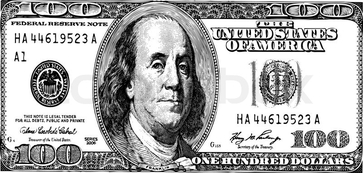
Brian Hinkle's Prize Problem has remained unsolved and now Brian has increased the prize to $100 as of 00:01 HST, August 1, 2021. The final deadline for the receipt of a correct solution is 00:01 HST, August 27, 2021. There will be no further prize increases and the solution and name of the winner (if any) will be published in The Checker Maven on August 28.
The problem has resisted the efforts of top players and strong computer programs. Brian has even asked to have a computer search done to an unprecedented level of a trillion positions.
But it can be solved. Will you be the one to do it?

Terms and conditions apply; see the Prize Problem article, linked above, for full details. Void where prohibited by law.![]()
Contest Prize Will Be $75
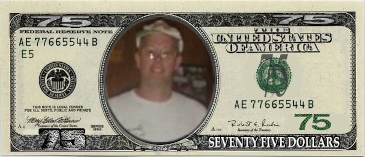
At 00:01 AM HST on July 1, 2021, the prize for solving Brian Hinkle's Prize Problem (see here) will increase to $75.
As of this writing, no one has claimed the prize so the field is wide open.
Give it your best and win some money!
Conditions and limitations apply. See contest article linked above. Void where prohibited by law
![]()
2021 ACF National: A Big Thank You
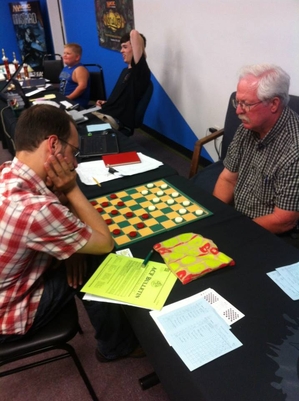
After a year's hiatus due to the Coronavirus pandemic, the ACF National Tournament is slated to return in October, 2021, and it's all thanks to the efforts of Joe McDaniel and his family.
It's shaping up to be one of the great competitions of checker history with a prize fund of epic proportions, running into the tens of thousands of dollars.
The tournament will take place in Tulsa, Oklahoma, October 4-7, 2021. You can read full details in the tournament flyer by clicking here.
Mr. McDaniel granted The Checker Maven an interview, which we're pleased to publish today. Joe had the following opening comment.
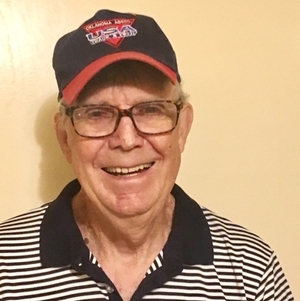
Joe McDaniel
"Since 1943 I have been fascinated by checkers. The fact that on the surface it appears to most everyone to be a simple game, for children and very old folks. This is one thing that intrigues me.
I am not a really good player. If I finish half way in the minors in a major tournament I am happy."
Well, Joe, we're not so sure about you being a "not really good" player, but here's the rest of the interview.
Q. After a year's hiatus due to Covid, the 2021 ACF National Tournament looks to be one of the most spectacular offerings in tournament history, with $32,000 in guaranteed prizes. How did this come about?
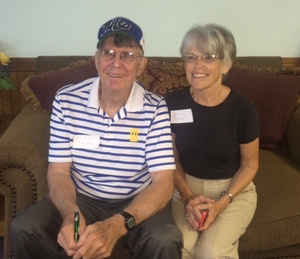
Mr. and Mrs. Joe McDaniel
A. Most of the prize money for the 2021 national tourney is from my wife and me. ACF will provide $9,000 and individual donations will be about $1,500. My sons have given $16,000.

Danielle Winkler and David Seres
We are also giving $5,000 for the Kondlo/Bernini GAYP match which will happen right after the tourney. We will also give $4,500 for the World Qualifier here in Tulsa in November.
The total cost for the tourney and match will be about $47,000. This includes helping with the hotel rooms for several individuals. Also, the cost of entry fees and ACF membership will be around $3,000. Missouri Checker Association fees will be around $300.
The love of the game has motivated me to be the major sponsor.
Q. Tell us more about the decision to honor a great champion, Alex Moiseyev.

Alex Moiseyev
A. We believe Alex M. deserves to be the honoree based on his accomplishments. He is arguably the best player in the country.
Q. What do you expect to see in the way of participation? Do you anticipate much in the way of youthful contestants?
A. We had 56 players in the last national 3-move in Branson in 2015. Hopefully we can have the same number in Tulsa. We are personally contacting several young players.
Q. Do you expect any difficulties with Covid restrictions?
A. If Covid is still a threat we may have to postpone the tourney into 2022.
Q. How can the checker community help out with this tournament?
A. We are asking for contributions in the letter we have sent to over 100 players. If you wish to help with the prize fund, send your contribution to: 1416 S. Marion Ave., Tulsa, OK 74112. Make checks payable to Joe McDaniel. Contact okrunjoe@cox.net you have any questions.
Thanks, Joe, for this fascinating information, and for everything you do for the great game of checkers. We all look forward to this year's tournament.
We asked Joe for his favorite checker problem, and he mentioned one by grandmaster problemist Brian Hinkle that we've previously published. Rather than repeat that problem, Brian generously provided us with another of his sparkling compositions.
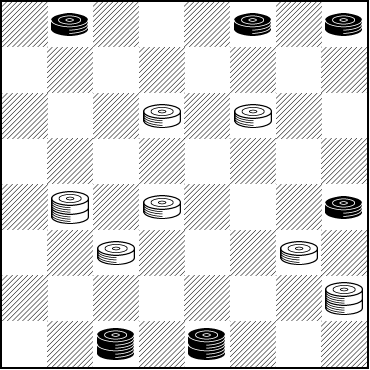
WHITE
White to Play and Win
W:W10,11,K17,18,22,24,K28:B1,3,4,20,K30,K31
Give this one a try and you'll understand why Joe picked one of Brian's problems as a favorite. When you're ready click on Read More to see the solution.![]()
Brian Ups the Stakes
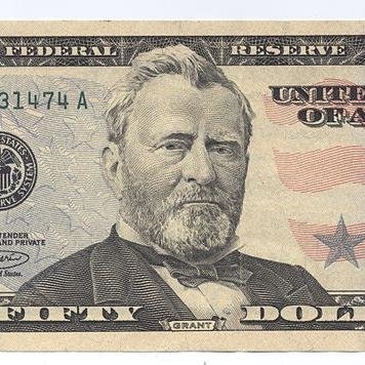
Brian Hinkle's Prize Problem hasn't been solved as of the date of publication, so he's upping the ante. As of 00:01 AM HST on June 1, the prize offer will increase to $50. Brian asks, "Are you a gambler?" In other words, do you submit your solution now, while the prize is still $25, or take the chance and wait for the $50 prize, knowing that someone else might solve it in the meantime? It's all up to you!
We won't be publishing the solution on June 4, as originally planned, to allow further time for someone to submit the winning solution. Good luck to one and all!![]()
See terms and conditions on the problem page linked above. Void where prohibited by law.
Host Migration Completed

We've just completed a transfer of our website hosting to a new hosting company. The old company, one we've been with for nearly 20 years, regrettably has suffered a deterioration in reliability and responsiveness. These things, combined with ever-increasing costs, told us it was unfortunately time to move on.
The transition was both expensive and time-consuming, occupying several marathon days and nights. We're still not certain that everything is back to 100% operation, so if you notice anything that seems wrong, please let us know. However, we're hoping for smooth sailing from here on out.![]()
Rebooting Checkers

Checkers is in need of a reboot. That's the opinion of Australian Richard Torning, and he has some original ideas about how to go about it.
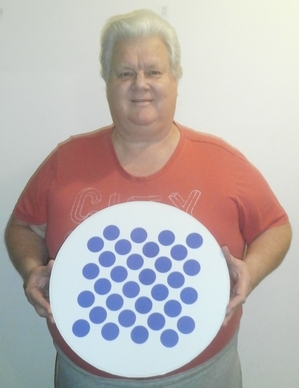
Richard Torning and "Roundsquare" Board
We can't argue with Mr. Torning's major premise. The fortunes of our game of checkers have been declining since the 1950s, when television became a big thing. You've heard it all before, about how the public considers checkers a game for kids and old men; that someone is playing "checkers" instead of "chess" when they need to up their game and move to a higher level; and the list goes on.
Mr. Torning wants to make the game more appealing, and to do so he's revived and modernized an idea that actually goes back more than 100 years but never really caught on: the "roundsquare" board. But instead of trying to fit a square peg into a round hole (or vice-versa), he's instead "circling the square" and the new board is just one part of a multi-pronged approach.
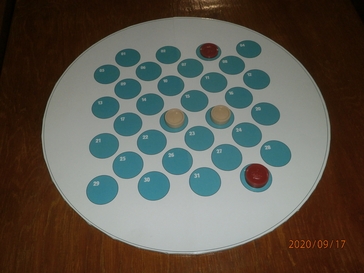
Numbered "Roundsquare" Board
We did an an-depth interview with Mr. Torning. You can read it all by clicking on Read More, just below the problem solution (please solve the problem first!), and we think you should. Mr. Torning has an insightful and appealing message for us. Not for him is yet another "modern" variant of the game that inevitably detracts rather than adds. His ideas are practical and cogent.
For one thing, he'd like to see a fresh start with the game renamed, and the name depending upon the language and usage of a particular area. He suggests Checkers-32 in the United States, Draughts-32 elsewhere in the English-speaking world, and so on, even going so far as to suggest a series of meaningful names to use among Aboriginal groups in Australia.
Of the "roundsquare" board, he says this: "The aim is to keep a minimalist approach to the game by further eliminating the 32 superfluous squares on the board but retaining the rules and shape of the two pieces. Instead of limiting the game to red/white or black/red pieces there is a need to make the game colorful, attractive, eye-catching, and simple to understand."
Mr. Torning's prototype boards are indeed very colorful and attractive and instantly attract attention. He also points out that using this board would uniquely differentiate our version of checkers from all others, and especially distance the game from chess.
Again, we urge you to read Mr. Torning's full remarks. He has also provided an interesting booklet, Early Australian Draughts Games, which you can download here.
The Draughts-32 idea is currently being prototyped at Minimbah Aboriginal School in Australia. Mr. Torning hopes to spread it far and wide and asks for your support by trying out the new board and the new ideas in your own checker playing community, and then becoming an ambassador.
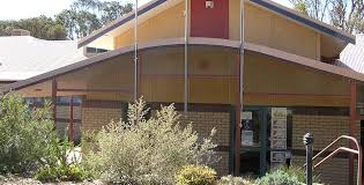
Building at Minimbah School
We can only wish Mr. Torning much success. Surely we would all like to see checkers have a vibrant and exciting future. Mr. Torning is working to make that happen.
And now, to "round" out today's column and "square" all accounts, here's a checker problem presented on a roundsquare board.
BLACK
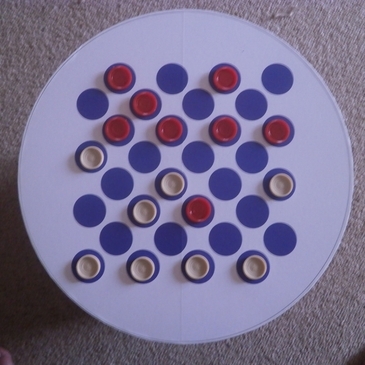
WHITE
White to Play and Win
W:W13,18,20,22,29,30,31,32:B1,3,6,9,10,11,12,23
See if you can get "round" to solving it, after which you can "square"-ly click your mouse on Read More to see the solution.![]()
Profile of a Checkerist: Anthony Bishop
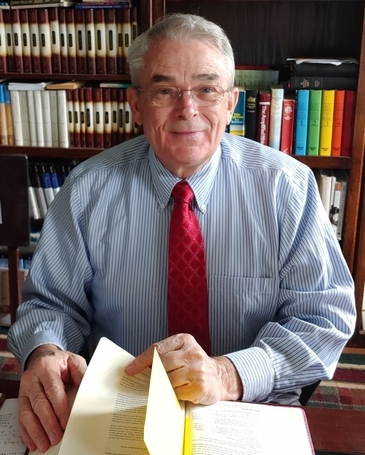
Anthony Bishop
Some years back we had the pleasure of meeting International Master Anthony Bishop, when he visited Hawai`i to take part in our one-time only, very small Hawai`i State Checkers Championship Tournament. Mr. Bishop won easily, of course, and landed the first prize of a $100 gift certificate from a local merchant. Gentleman that he is, Mr. Bishop turned around and gave his prize to a single mom who had taken part in the tournament. High principles and high quality of play are Mr. Bishop's hallmarks.
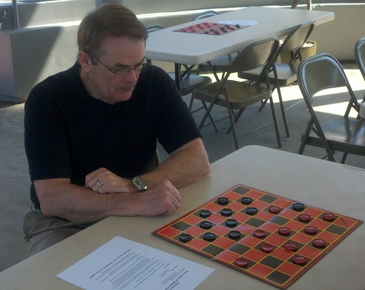
Mr. Bishop at the 2011 Hawai`i State Checkers Championship
You can read all about Anthony Bishop in his own words here. In a Saturday column we can only give a brief summary of the checker career of a remarkable man.
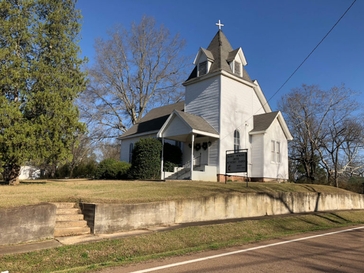
Hickory Valley, Tennessee
The town of Hickory Valley, Tennessee, where Mr. Bishop was born, may be small but it had an active and skilled checker playing community. Soon after he started playing, he made the acquaintance of a Tennessee grandmaster, Hugh Burton, a 38-time Tennessee State Champion. Mr. Burton became a lifelong friend and mentor.
Mr. Bishop started play towards the end of the Golden Age, and over the years made the acquaintance of all the greats: Tinsley, Long, Hellman, Lowder, Case, Banks, and many more. Mr. Bishop even worked for a while at Mr. Lowder's piano store as a piano salesman, remarking that with Elbert Lowder, there was never a dull moment.
Along with Mr. Lowder, one of the more interesting players Mr. Bishop ever met was Newell Banks, finding his skill and analysis abilities to be amazing.
Over the years, Mr. Bishop built up an outstanding checker library, eventually obtaining the collections of Arthur Reisman, Richard Fortman, Karl Albrecht, Hugh Burton, and Robert Shuffett.
Mr. Bishop views the 1978 publication of his extensive book The Encyclopedia of Checkers, to be his greatest contribution to the game. It's a book of photos and biographies of the checker greats.
He considers his highest playing achievements be consecutive wins in the 5th District Tournament over Hugh Burton and Lloyd Taylor in 1977, and over Lloyd Taylor in 1978. He has also competed in three international matches, obtaining excellent scores.
We asked Mr. Bishop for a favorite checker problem, and he offered this one by G. Slocum.
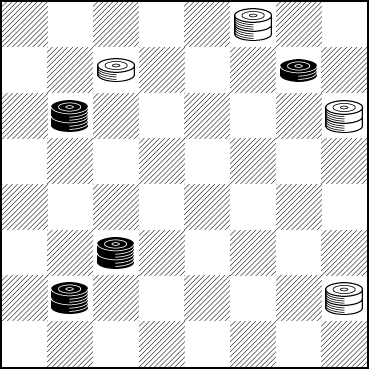
WHITE
White to Play and Win
W:WK3,6,K12,K28:B8,K9,K22,K25
Match wits with Mr. Bishop and Mr. Slocum and see if you can solve this amazing problem. You can check your work, as always, by clicking on Read More. ![]()
16th Anniversary Edition
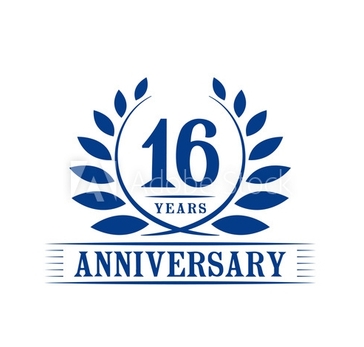
It's the 16th publication anniversary for The Checker Maven! And for this anniversary we have something very special: a master level problem composed by world-class champion checkerist Alex Moiseyev. You'll find it all just below.
But first, a big thank-you to all our readers. Without you, we never could have published for so long, and we invite you to look forward to as many more years of publication as health and wealth allow.![]()
Migration
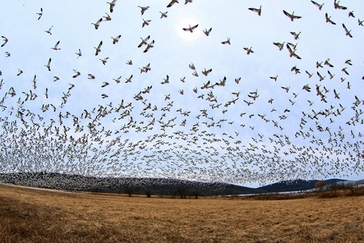
The Checker Maven has little in common with species who migrate often. But we are due for a different kind of migration.
Our website hosting company is moving us from an old server with old versions of software to a new server with new versions of software. Sounds good? Well, it turns out that our publishing platform, Nucleus CMS, needed a major update to even run at all on the new software.
It took us many hours of work, but we've prepared everything for the server move, and we'd like to hope it will go smoothly (famous last words). Now, the hosting company isn't able to tell us just when we'll get migrated over. We guess it's supposed to be some sort of surprise, which with computers is never a good thing.
We'll do our best to keep everything running as it should, but please help us out by telling us if you notice anything that doesn't work or doesn't look right, no matter how small. Please write to us at bugs@checkermaven.com. Mahalo for your support of The Checker Maven.![]()
50th Problem Composing Contest
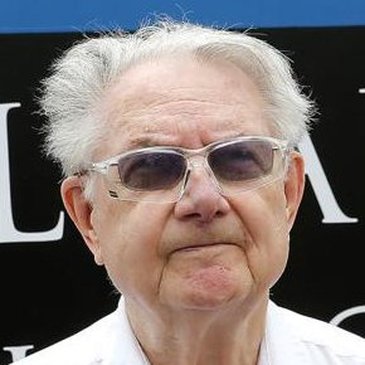
Mr. Bill Salot
Today (March 21, 2020) marks the start of Bill Salot's 50th Unofficial World Championship Checker Problem Composing Contest, which can be found on the American Checker Federation website.
Mr. Salot has long been an inspiration to us (and is indirectly responsible for our decision to continue publishing The Checker Maven beyond our initial 15 year run). He has reached age 90 without skipping a beat or seeming to slow down in the slightest.
Mr. Salot's eight-year long series of competitions has brought us a wealth of modern checker problems of amazing depth and quality. Each contest is eagerly anticipated by solvers and composers alike. Mr. Salot was kind enough to grant us an interview on the occasion of this milestone 50th event.

What gave you the idea for these contests in the first place?
It developed over a long period of time.
During my teen age years, in the 1940s in Detroit, I learned that tournament play was hard work while composing problems was fun. The latter became my primary hobby.
By the 1960s, I was corresponding with great composers. We freely shared many original problems, and published our best in the checker journals of the day. Occasionally our problems appeared side-by-side, and I found myself comparing them to determine which impressed me most.
I passed on to my composer correspondents the idea of side-by-side competition, and they liked it. A series of contests was born. We composers agreed to my publishing small groups of our confidential, original, unpublished problems along with requests for readers to rank the problems and mail me the results for publication.
Most , if not all, of the judges in a given contest ended up being the composers who did not happen to have a problem in that contest. They rotated between competing and judging. They included Ben Boland, Tom Wiswell, Joe Charles, Saul Cass, Milton Johnson, Floyd Brown, a young Melvyn Green, and others.
There were more than 30 such contests in the late 1960s and early 1970s. You can find them recorded in the ACF Bulletin and Elam's Checker Board, a few in the English Draughts Journal and a New Zealand publication.
The contests died out partly because of composer burnout and partly as a result of my parents' illnesses, together with a change in my responsibilities at work. I then dropped out of checkers for more than 35 years.
I woke up when a friend told me that nowadays chess and checkers are played on the internet. He gave me a couple of web sites. On the front page of the ACF site, previously published problems were periodically displayed. I thought, what a fine place that would be for a composer to display original, unpublished problems!

Later somebody posted, on the ACF Forum, a survey question complete with means to cast electronic votes. I saw that would be a great tool for reviving problem composing contests. Eventually Jason Solan set up a contest page and taught me how to administer it. The first contest then took place in January 2012.
How would you describe or characterize the way the contests have been received by the checker community? What sort of feedback have you gotten?
The number of returning visitors to and participants in each contest probably rivals the number of visitors and participants in most checker forums. In my infrequent ventures into tournaments, I get unsolicited positive comments and encouragement, never anything negative. The same is true for voting correspondents. So I would say the contests are generally well received by the checker community.
But composers tend to be more critical. They dislike problems that may be similar to published play, or seem undeserving of the votes they received, or are too unnatural in appearance, or too simple, or too laborious. Composers are sometimes sensitive to how problems are selected, or how solutions are presented, or how slow the contests are, or how few participate. I think all these criticisms are constructive, and the contests have improved as a result of them. I believe competing composers are generally loyal, have compositions to spare, want to win, and when they persist, eventually do win, while generally accepting losses along the way.

What do you see for the future of these contests? Do you plan to continue them indefinitely?
Yes, certainly continue them indefinitely! The backlog of original, unpublished problems has not run out. The contests should have some time left. After all, I am only 90. But eventually they will cease, unless and until somebody else wants to give them a try. So far there have been no applicants.
Problem composition is a true art. Have you seen this art develop over the course of the first 49 contests? How would you characterize today's problems compared with past history?
Problemists feel like artists, even when not recognized as such. But isnít that true of any avocation? Yes, the quality of the contests themselves have continuously improved, thanks to preliminary reviews, private discussions, computer-driven enhancements, and old-fashioned competitiveness. I canít emphasize enough the powerful influence of computers on todayís problems. They not only catch unsound analysis, they spring incredible surprises that seed new problems, many of which should be at least partially credited to the computer. The computer is the difference between historyís unsurpassed gems and masterpieces versus todayís new twists that would not exist without the computer. The computer is to problem composing what fracking is to natural gas production.

Any further thoughts or comments? Any stats you'd like to share?
Statistics are a boring waste of time unless they tell you something you didn't know before. Many stats on past problem contests (2012 - 2019) are posted at the web site. They are also in the annual Year in Review" articles on the ACF Forum.
Let me mention a few things that the contest statistics have taught me, or I should say humbled me.
1. One well-known player warned that the problem composing contests would not get off the ground, if previously published and flawed problems were not screened out beforehand by reviewers with huge databases. He was right. The first year, 7 of 30 problems entered (>23%) were disqualified, including the winners of 2 contests. A call went out for willing reviewers with large databases. A team was formed that is still intact. Only one problem was disqualified in 2013, one in 2014, one in 2016, one in 2017, and two in 2018. So 6 of 191 problems entered after 2012 (<3.2%) were disqualified. Thatís not perfect, but not bad.
2. Another well-known player recommended that the contests not include problems that were 4x4 or smaller. He warned that almost all ideas possible in positions that small have already been published. He apparently was mistaken. Of the 215 problems not disqualified in Contests 1 through 48, 66 (>30%) were 4x4 or smaller. Contest 10 was devoted entirely to 4x4s; Contests 40 and 50 have only 3x3s. Such problems apparently are not exhausted.
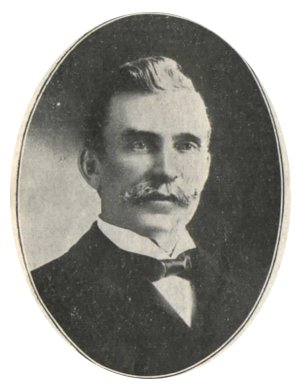
George H. Slocum
3. These contests included perhaps the rarest of all human competitions, the living versus the dead. Six times, living problemists were challenged by George H. Slocum, who died in 1914. Slocum is acknowledged as one of the greatest checker problem composers of all time. Jim Loy found a bunch of Slocum problems published in an obscure journal, unknown to our generation because they were never republished elsewhere. We entered six of them in contests, during 2016-2017, to see how they would fare against todayís talent. They all lost, which only means they probably were not among Slocumís best efforts. After the votes were counted, each of the six Slocum problems was disqualified due to their prior publication. These problems and disqualifications were not counted in item 1 above.
4. The three contests with the most votes by far were contests 2 (35 votes) and 3 (40 votes). They made us think that the contests had exploded in popularity. But that didnít make any sense. Those early contests had no publicity outside of the web site, and they did not run for six weeks as they do now. It turned out that a strange glitch in the voting program was resetting the voting button, implying that a vote was not accepted and needed to be cast again. The Web Master was unable to eliminate the glitch, but he did add an ďI already votedĒ button, which persuaded voters to not vote multiple times. After that, the voting settled into a normal average of 17 per contest.
5. After years of problem composing experience and correspondence with many great composers of yesteryear, I truly expected to dominate these contests at the outset. That was before I heard of the likes of Roy Little, who subsequently won or tied for first 19 times and won Problemist of the Year 4 times, and Ed Atkinson, who won or tied for first 14 times and won Problemist of the Year 3 times. They did it all without entering every contest. I am the only one who did. In contests that Roy and Ed entered, Jim Loy and I each won or tied for first only 7 times. Leo Springer did it 5 times in 5 tries. The sum of all those wins exceeds the number of contests because of the many ties. I am especially humbled by my 6 entries that received zero votes each.
6. I believe some of the clearest indications of the contest voting statistics apply to other aspects of human life, such as politics, religion, ethics, morals, etc. Different people simply look at the same problem and see something entirely different. They often, not just sometimes, draw diametrically opposite conclusions. In 32 of the first 48 contests, every problem received at least one vote for first place. In other words, two-thirds of the time, every problem, even the worst one, is voted best by somebody. If we cannot agree on the value of something as minor as a position on a checkerboard, is it any wonder that we canít consistently agree on real world issues?
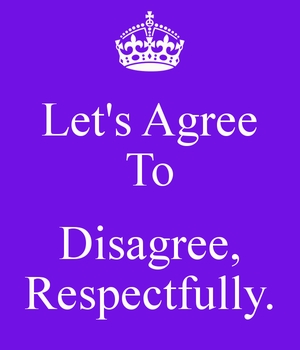
The Checker Maven once again thanks Mr. Salot for his time in providing answers to our questions, and for the opportunity to give our readers an insight into his monumental, ongoing contributions to the game. Now, as a special treat (and it's special even if you've seen it before), here is a unique problem by Bill Salot, which he originally called Don't Ask--- as in, "don't ask" how the position arose!
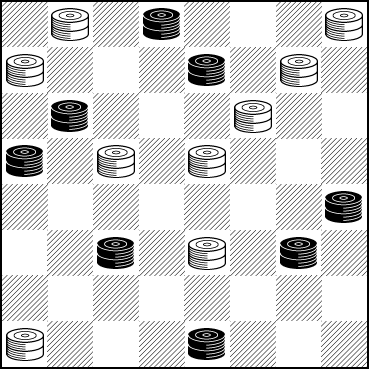
WHITE
White to Play and Win
W:WK1,K4,K5,K8,K11,K14,K15,K23,K29:BK2,K7,K9,K13,K20,K22,K24,K31
This one is really something, and we're certain you'll enjoy solving it. But if you're not able to contest it, clicking on Read More will uncontestedly show you the solution.![]()
The Checker Maven is produced at editorial offices in Honolulu, Hawai`i, as a completely non-commercial public service from which no profit is obtained or sought. Original material is Copyright © 2004-2024 Avi Gobbler Publishing. Other material is the property of the respective owners. Information presented on this site is offered as-is, at no cost, and bears no express or implied warranty as to accuracy or usability. You agree that you use such information entirely at your own risk. No liabilities of any kind under any legal theory whatsoever are accepted. The Checker Maven is dedicated to the memory of Mr. Bob Newell, Sr.

